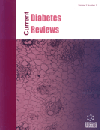
Full text loading...
The assessment of the quality of life (QoL) among type 2 diabetic patients is associated with different factors. Evidence shows that these patients usually suffer from a lack of knowledge about the disease, inadequate self-care, and low QoL.
The study aimed to assess knowledge of the QoL of type 2 diabetes patients and its possible associated factors.
This cross-sectional descriptive correlational study recruited type 2 diabetic patients conveniently from out-clinics to achieve the objective of the study. The Diabetes Quality of Life Brief Clinical Inventory (DQoL) and the Diabetes Knowledge Questionnaire 18 (DKQ-18) along with a demographic questionnaire were used for patient assessment.
A total of 184 patients participated in the study. Patients' knowledge of diabetes was found to be low (8.57 out of 18), with no statistical differences between male and female participants (p=0.259). The average DQoL score was 2.87 out of 5, indicating moderate satisfaction and self-care behavior. DKQ-18 and DoQL were found to be correlated (r= 0.216, p=0.003). However, the patient’s age was found to be a significant factor that influences patients’ QoL (F=4.27, p=0.040), whereas patients’ knowledge contributed weakly to the variation of QoL (F=1.70, p=0.084).
Irrespective of knowledge and educational background, the patient’s age is influential in enhancing better QoL among type 2 diabetic patients.

Article metrics loading...

Full text loading...
References


Data & Media loading...

